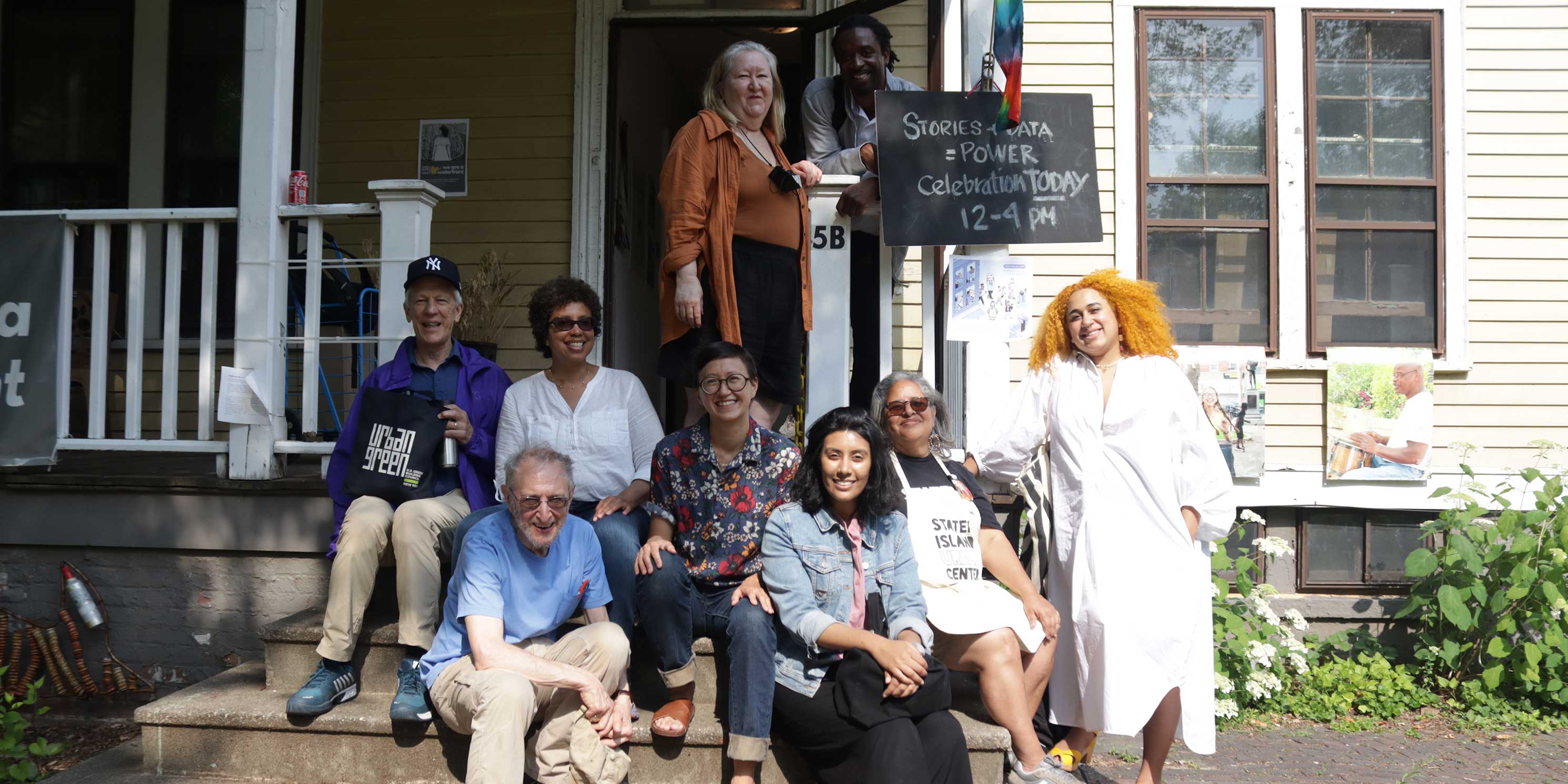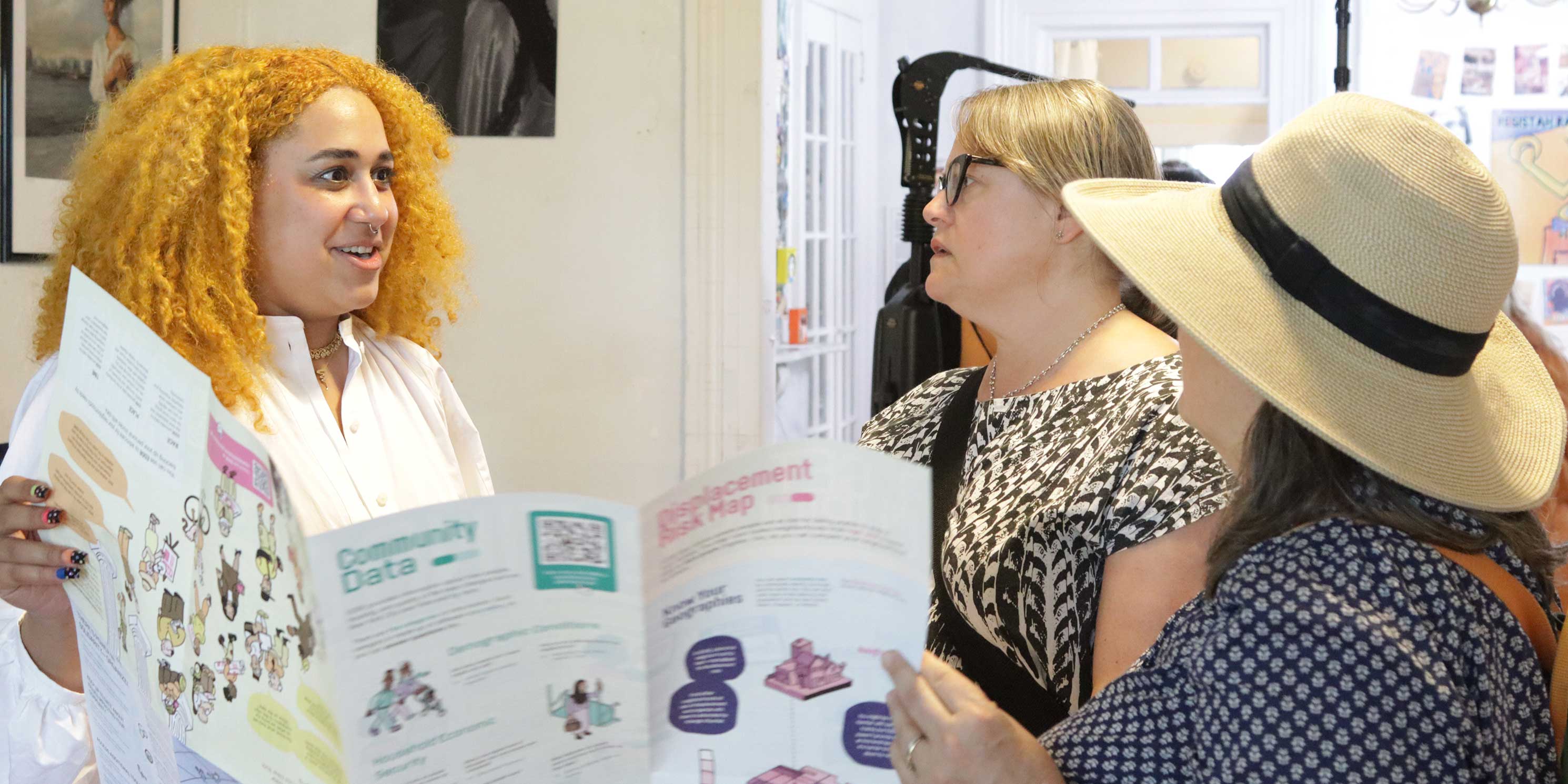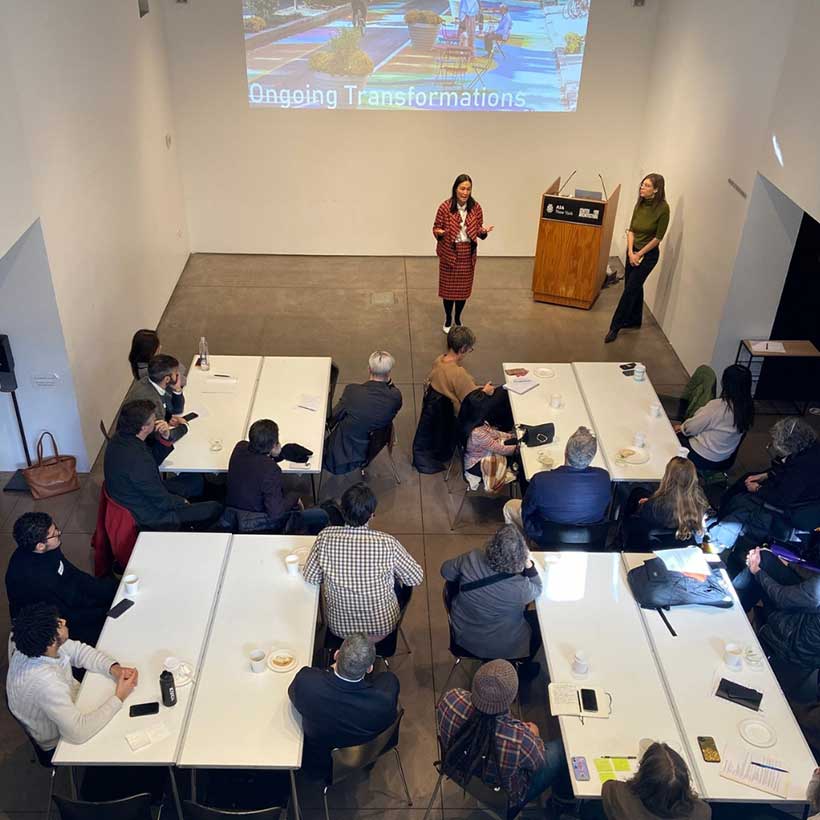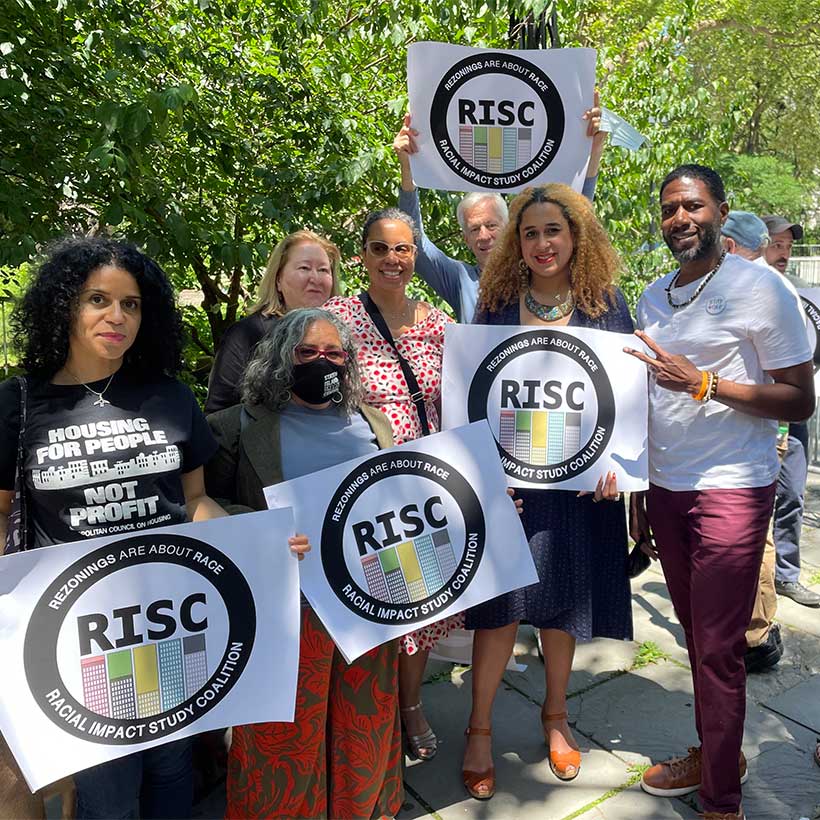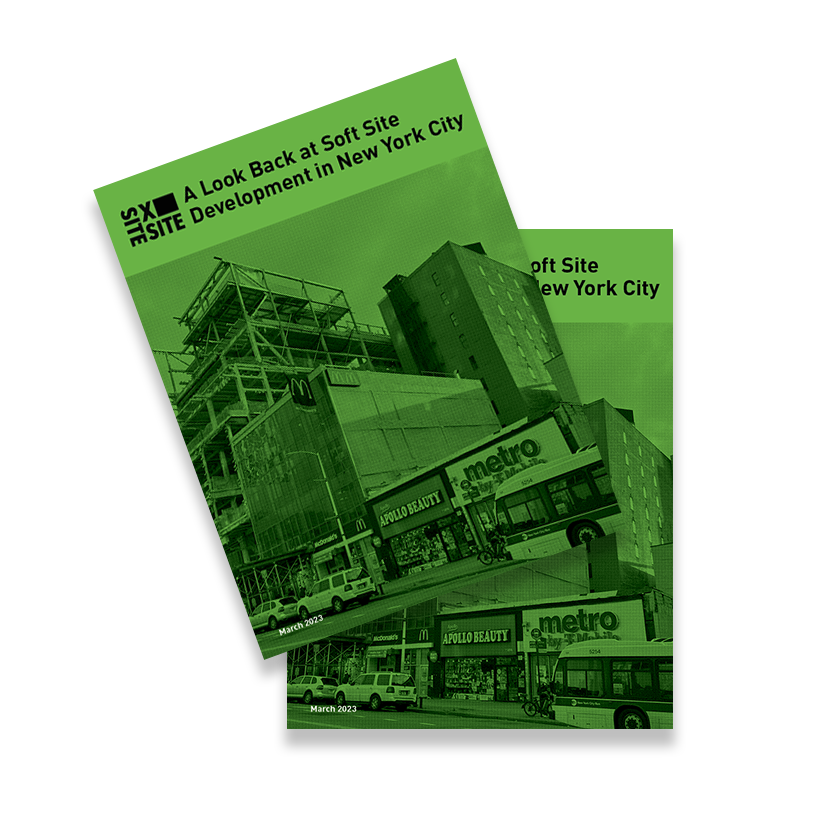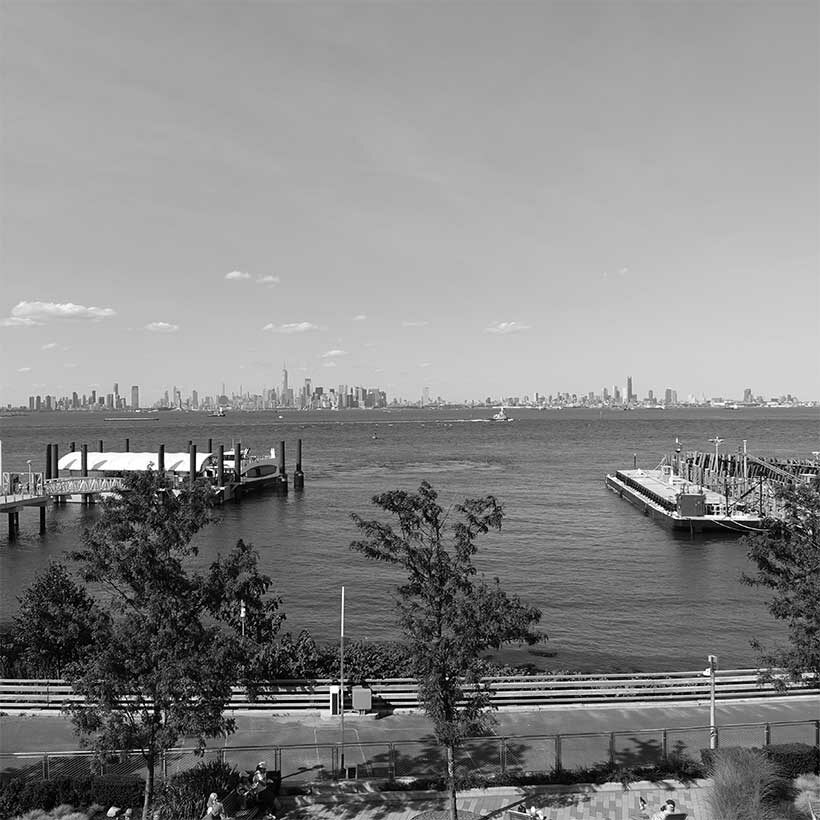Advocacy in Action
Collaborating on citywide solutions for equity, public realm access, racial justice, and resiliency
MAS is a member of several coalitions that are actively working to make planning and land use decisions more equitable, improve public space access and management, and advance a more climate resilient region. Below are coalitions that we are regularly engaged with.
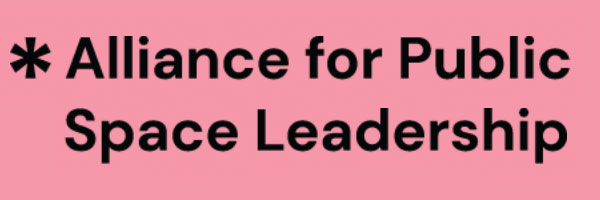
Alliance for Public Space Leadership (APSL)
The Alliance for Public Space Leadership advocates for achieving equitable solutions and effective planning, investment, and management of New York City’s public spaces. APSL was co-founded by MAS, the American Institute of Architects-New York, Open Plans, and New Yorkers for Parks. APSL is made up of community-based organizations, small businesses and street vendors, business improvement districts, disability advocates, design professionals, open street volunteers, park conservancies, and others who have been working through ways to improve New York City’s public realm. As a result of extensive advocacy by APSL, in 2023 Mayor Eric Adams created a Chief Public Realm Officer position for New York City, the first such position in the city’s history. Learn more publicspace.nyc.
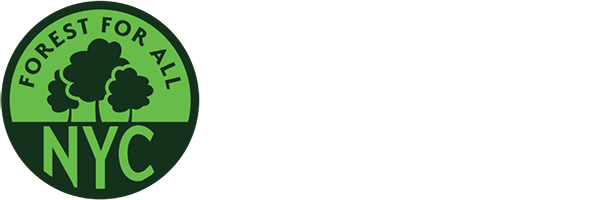
Forest for All NYC
Forest for All NYC was formed to demonstrate the vast support for the New York City urban forest. The coalition works to advance the NYC Urban Forest Agenda, a roadmap to protect, maintain, expand, and promote the New York City urban forest in a way that is just and equitable. Among its goals is to increase tree canopy coverage to 30 percent by 2035. Spurred by the coalition’s advocacy, in 2023 the New York City Council passed a bill to expand current tree canopy cover from 22 to 30 percent and mandated the creation of a citywide urban forest plan. Learn more forestforall.nyc.
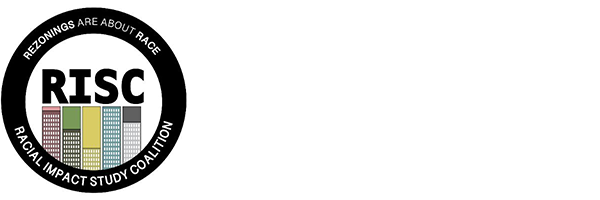
Racial Impact Study Coalition (RISC)
The Racial Impact Study Coalition works to ensure that the City of New York meaningfully considers racial impacts in major land use decisions. RISC is composed of neighborhood groups, community-based organizations, and citywide planning organizations that share a commitment to protecting New York City communities from racialized displacement and expanding permanently affordable housing to all neighborhoods. Years of advocacy by RISC and the Public Advocate, Jumaane Williams, led the New York City Council to pass Local Law 78 of 2021, requiring for the first time that applicants include a Racial Equity Report for most rezonings. It also led to the creation of the Equitable Development Data Explorer, a citywide resource that explores relative displacement risk and disaggregates certain datapoints by race. Learn more racialimpactnyc.org.
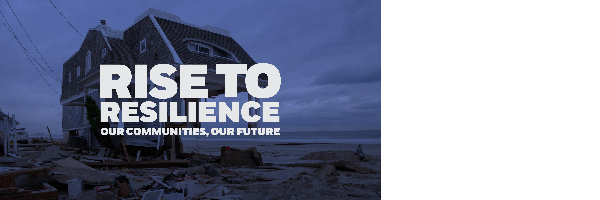
Rise to Resilience (R2R)
Rise to Resilience advocates for reducing the risks that New York City faces from climate change impacts and ensuring the region is resilient for future generations. Spearheaded by the Waterfront Alliance in 2019, R2R includes more than 100 organizations representing residents, business leaders, labor and justice advocates, scientists, environmentalists, and design professionals collectively calling on federal, state, and local governments to prioritize climate resilience in policy and legislation. R2R’s advocacy led to the passing of Senate Bill S5472A by Governor Hochul in 2023 which requires the disclosure of a home’s flood history and risk information as well its location in the 100-year flood plain to prospective buyers and lessees. R2R’s recommendations supporting the Water Resources Development Act passed by Congress in 2022 helped establish procedures and guidelines for future water resource development projects, provide technical assistance to low-income communities to plan for flood resiliency, and require Federal agencies to use natural and nature-based infrastructure for flood reduction. Most recently, R2R has been integral to improving the scope and environmental review process of the Army Corps of Engineers’ NY-NJ Harbor and Tributaries Focus Area Feasibility Study (HATS), a $52.7 billion plan to construct in-water storm surge barriers, dunes, dikes, and levees in waterways throughout the region. Learn more rise2resilience.org.
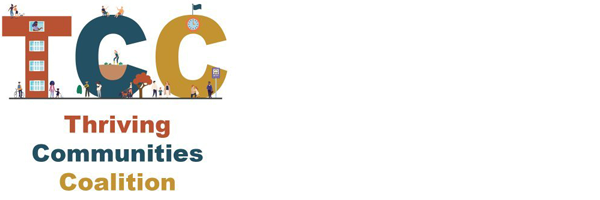
Thriving Communities Coalition (TCC)
The Thriving Communities Coalition is committed to land use justice in New York City, advocating for increased neighborhood and resident power. TCC works to propose policies that would increase and protect existing affordable housing and create meaningful planning and land use reforms to reduce inequality, segregation, and displacement. The coalition includes grassroots organizing, advocacy, policy and technical assistance groups who work across various issue areas and neighborhoods. TCC regularly creates and testifies on land use policy proposals to secure greater equity and affordability for New Yorkers. TCC supports achieving a comprehensive plan for the city and wrote in support of City Council Speaker Adrienne Adams’ Fair Housing Framework legislation. Learn more anhd.org/project/thriving-communities-coalition.
Follow MAS:
MAS members and partners are crucial to everything we do. Please consider contributing to MAS and joining our community of advocates.
Support UsContact a staff member about this initiative. planning@mas.org >

